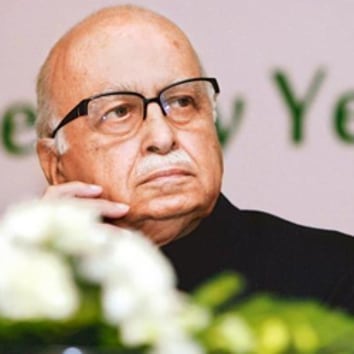Moment of fulfilment: LK Advani on Supreme Court’s Ayodhya ruling
LK Advani, a former deputy Prime Minister who turned 92 on Friday, only met a few close aides and former Union minister Uma Bharti, who, too, was part of the temple movement, on the day of the verdict.
Veteran Bharatiya Janata Party (BJP) leader Lal Krishna Advani on Saturday said that the Supreme Court’s ruling that paved the way for the construction of the Ram Temple in Ayodhya has vindicated him.

“...I feel deeply blessed,’’ said Advani, who led the BJP’s countrywide campaign for the temple construction in the early 1990s, in a statement. “This is a moment of fulfilment for me because God Almighty had given me an opportunity to make my own humble contribution to the mass movement, the biggest since India’s Freedom Movement, aimed at the outcome which the Supreme Court’s verdict today has made possible.”
Advani, a former deputy Prime Minister who turned 92 on Friday, only met a few close aides and former Union minister Uma Bharti, who, too, was part of the temple movement, on the day of the verdict.
Advani said that he has always stressed that Ram and Ramayana occupy an esteemed place in India’s cultural and civilization heritage. He added that Ramjanmabhoomi (birthplace of Ram) holds a special and sacred place in the hearts of millions of countrymen in India and abroad. “Therefore, it is gratifying that their belief and sentiments have been respected,” he said.
Advani also welcomed the court’s ruling that five acres of land be given at a prominent place for building a mosque in Ayodhya. “Today’s judgement is the culmination of a long and contentious process that played itself out in various forums – both judicial and non-judicial...,’’ he said.
“Now that the prolonged Mandir-Masjid dispute in Ayodhya has come to an end,the time has come to leave all contention and acrimony behind and embrace communal concord and peace.” He added that towards this end, he appeals to all sections of India’s diverse society to work together to strengthen national unity and integrity.
“[During] the course of the Ramjanmabhoomi Movement [for the temple construction], I had often stated that the true purpose of constructing a Ram Mandir at Ayodhya is to construct a magnificent Rashtra Mandir – building India as a strong, prosperous, peaceful and harmonious nation with justice for all and exclusion of none,’’ he said. “Let us rededicate ourselves to that noble mission today.”
A person who works in his office said that Advani, who maintained silence throughout the day before sending out the statement in the evening, watched TV for updates on the judgment. He added that Advani remained calm and composed.
There were a few phone calls, but Advani did not respond to them even as he met Bharti at his residence.
“I came to thank him,” Bharti said after meeting Advani. “Without him, we would not have reached this stage.” Bharti added that she came to seek Advani’s blessings and bow before the veteran.
Another BJP veteran Murli Manohar Joshi, who was the party’s president when the Babri mosque was demolished in 1992, said that everyone should accept the verdict and move on. “It is a happy moment for me.”
Advani and Joshi are among those facing criminal conspiracy charges before a special Central Bureau of Investigation (CBI) court in Lucknow for allegedly bringing down the mosque. The special court has fixed December 24 as the last day for presenting the prosecution evidence in the case.
The BJP first adopted a resolution on Ram Temple at its national executive meeting in Palampur in June 1989 under Advani’s leadership. The BJP’s backing of the Vishwa Hindu Parishad-led movement for the temple construction catapulted it to a position of prominence in Parliament. From two seats in 1984 national elections, the BJP’s tally improved to 85 in 1989. Advani began his temple campaign a year later and the issue first figured in the party’s election manifesto for the 1991 election when the BJP won 120 seats and became the second-largest party in the Lok Sabha.
The BJP emerged as the single largest party in the 1996 elections with 161 seats following the demolition of the Babri Mosque four years earlier.






